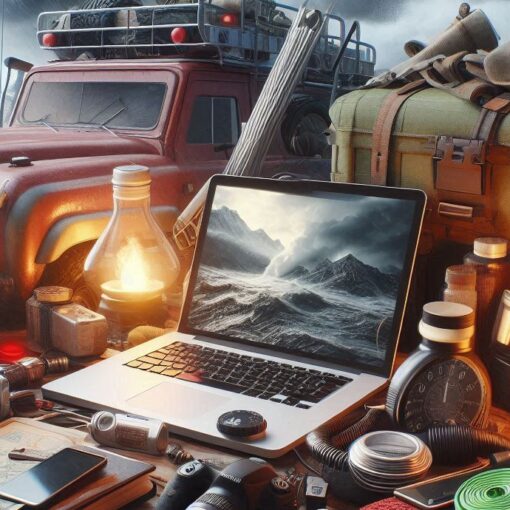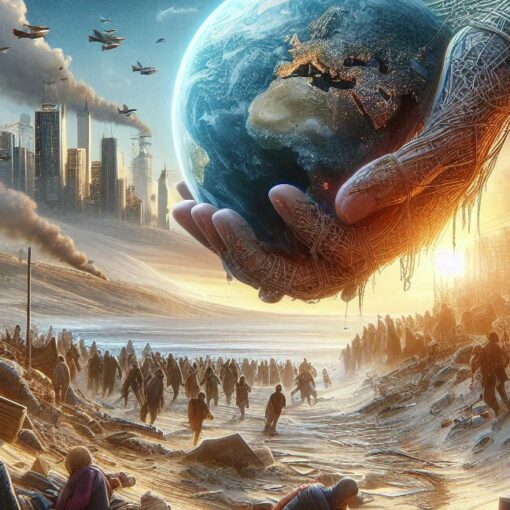
Understanding geopolitical tensions is like trying to decipher your cat’s mood when it suddenly decides your lap is its throne. One minute, everything seems fine; the next, you’re wondering if it’s plotting a coup while you’re just trying to enjoy a cup of coffee.
In our increasingly connected world, what happens on the other side of the globe can have surprising implications for our local safety and everyday lives. So let’s unpack this topic with a bit of humor and some serious insights.
What Are Geopolitical Tensions?
Geopolitical tensions arise from conflicts between countries over resources, territory, or power—kind of like siblings fighting over who gets the last slice of pizza but on an international scale. These disputes can be sparked by anything from territorial claims to trade disagreements.
For instance, imagine two neighboring countries arguing about whose turn it is to control a river that runs between them. It sounds petty until you realize that water is essential for survival!
These tensions can escalate quickly, much like when I accidentally use my spouse’s favorite mug without asking. Next thing you know, I’m dodging flying dishes instead of enjoying my morning brew! The key takeaway here is that geopolitical issues don’t just stay in their own little corners; they ripple outwards and can impact us all.
How Do Global Conflicts Affect Local Safety?
You might wonder how a disagreement between two far-off nations could affect your neighborhood barbecue plans. Well, let me paint you a picture: if tensions rise into conflict or war, resources may become scarce—think gas prices skyrocketing as supply chains get disrupted faster than my kids running away from chores.
Additionally, these conflicts can lead to increased military presence or law enforcement measures in various regions as governments try to maintain order at home.
Suddenly, your peaceful town might feel more like an episode of “Survivor.” You’d better believe I’d start hoarding marshmallows for s’mores because who knows when we’ll need them!
Economic Impacts: The Ripple Effect
Let’s talk money because nothing gets people riled up quite like finances! When geopolitical tensions flare up, markets react quicker than I do when someone mentions free pizza at work. Prices for goods and services may rise due to shortages or increased tariffs on imports from affected regions.
For example, if there’s unrest in oil-producing countries, gas prices could spike overnight! This means less money for fun things—like camping trips where we roast marshmallows and tell ghost stories (the ones where I’m not the ghost).
Honestly though, keeping an eye on economic trends related to global events can help us prepare financially for any potential fallout.
Preparing Locally: Community Awareness
Now that we’ve established that geopolitics isn’t just boring news you scroll past during lunch breaks let’s discuss how communities can stay informed and prepared. Think of yourself as part detective and part Boy Scout: always be prepared!
Communities should encourage open discussions about local safety in light of global events. Host town hall meetings where everyone shares concerns—preferably without shouting matches resembling reality TV show drama! You never know; your neighbor might have insights into securing supplies or forming community watch groups based on current events.
Staying Informed in Real-Time
In today’s digital age, staying informed has never been easier—or more overwhelming! News updates are everywhere—from social media feeds filled with hot takes (that often resemble chicken scratch) to reliable news outlets providing fact-checked information.
It’s crucial to discern which sources are trustworthy because misinformation spreads faster than rumors at family gatherings!
I recommend following reputable news channels or subscribing to newsletters focused on international affairs so you don’t miss important updates affecting your area directly. After all, knowing what’s happening globally gives us tools to navigate potential challenges locally.
Building Resilience Together
Finally—and perhaps most importantly—we need resilience as individuals and communities during turbulent times caused by geopolitical tensions. By fostering connections with neighbors (even those who think pineapple belongs on pizza), we create support networks ready to tackle whatever comes our way.
Let’s see… organize community training sessions focusing on emergency preparedness skills such as first aid or disaster response planning! We might even throw in some fun outdoor activities—like learning how to build a fire without burning down the neighborhood—which would definitely boost morale!
In conclusion (and yes—I promise I’m almost done), understanding geopolitical tensions helps us recognize their local impacts so we can take proactive steps toward enhancing safety within our communities while keeping spirits high—even amidst uncertainty!
Suggested Resources:
Understanding Geopolitical Risks
https://www.c-span.org/video/?c4964402/understanding-geopolitical-risks
The Impact of Geopolitics on Local Economies
https://www.forbes.com/sites/forbeseq/2021/03/01/the-impact-of-geopolitics-on-local-economies/?sh=3f6e4a9d2c3d
Emergency Preparedness Tips
https://www.ready.gov/emergency-preparedness-tips




